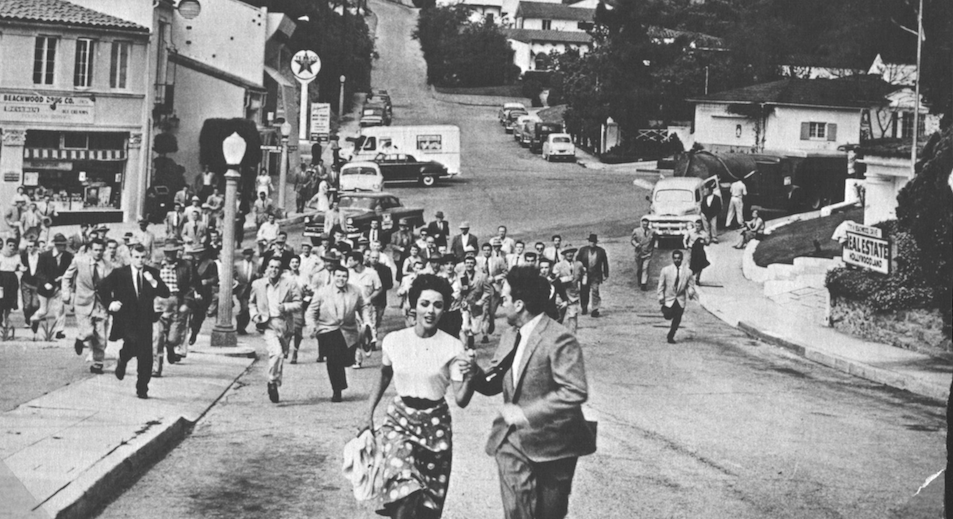Lying in bed, I turn and gaze over at my mate, the love of my life. She knows me as well as anyone can, it is with her that I feel completely understood. And yet I will never truly know her.
Try as I might to share every thought and inner secret, to connect in every way possible, I still cannot experience the same sunset, cannot hear a song or taste a food or suffer a loss as would she, cannot share with her that final journey each of us must take. We could live together for 50 years – for all eternity – and still that separation would remain. It is the most impregnable of all barriers.
Not surprisingly, prisoners cite isolation as the cruelest of punishments. Over time, the mind simply cannot handle extended periods of total isolation – eventually the prisoner, which is to say his mind, “breaks.” In a sense, every human is serving a life sentence in isolation. Conditioned since infancy, the mind sees an outside world and imagines that its peace and happiness lies in the people and things of that world. Yet again and again it fails in its quest, and deep down, in the places none of us want to explore, comes a growing fear that it is ineluctably, permanently, alone.
This sense of an enforced, impossible separation is at the core of human suffering and fear. Everything we do is an attempt to bridge the gap, to find “true love,” to find meaning. When we fight with another – be it at the individual or group level – we do so out of frustration, out of our desperate desire for others to experience the world as we do, out of an intense need for another simply to understand. Or as Deborah Tannen famously intones in her book on relationship struggles, each of us is forever crying out to the other, “You Just Don’t Understand.”
The squabbling of a mother with her child, a husband with his wife, a government with its people, all of that discord is composed of the same stuff. Listen to the rancor of any American political season and the zeitgeist is always the same: “They are ruining this country. We must take back the country from them.”
But if we truly look at things, we see the impossibility of ever reaching a complete accord with anyone on anything. Consider: You meet a new mate who is perfect in every imaginable way. You date for weeks – maybe even months – and nary a squabble. And then you notice the way your new mate loads the dishwasher.
Or the newly minted mother, her child unimaginably beautiful, precious – she cannot imagine loving anything the way she does that baby. At last, “true, unconditional love” has been found. And then the child develops a personality, a sense of itself as its own little being. The “terrible two’s” have arrived and brought with it conditional love.
The fearful mind will not rest in its search for connection, for love and meaning and purpose. Marriages, alliances, teams, unions, pacts, religious or political movements, initiatives, campaigns, gangs, families, cults, fraternities, clubs – the list is endless. And with each dislocation – a death, divorce, termination, disassociation – comes a new round of suffering, a realization that you weren’t such an integral piece to that puzzle after all. You are astounded at how quickly your mate has moved on, your job filled by another, that the dead remain stubbornly dead. Comes the thought, “I am all alone. I don’t really matter at all.”
In the vacuum of that new loss arises a fork in life’s path: in one direction more of the same, in the other an exploration of the meaning of one’s own existence. (All are called, few listen.) The mind urges us onward, back onto the wheel, after that damned cheese. Surely this time we will grab it, cross the finish line, spike the ball. A new relationship, job, baby, vacation, cause – this is all that is needed. And if we listen to the words they are always the same: “I am in love.” “She is the person I’ve always been searching for.” “This job is absolutely perfect for me.” “My new baby is such a joy.” “For the first time I really feel like I’ve got a purpose in my life.”
A few weary souls, however, at last recognize the impossibility of the quest. They see themselves as that frustrated rat, the wheel (earth) forever spinning beneath their feet, the reward never any closer. There’s got to be another way, another direction. And then comes the discovery that there is only one other direction: within.
(To be continued….)

